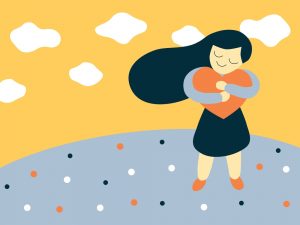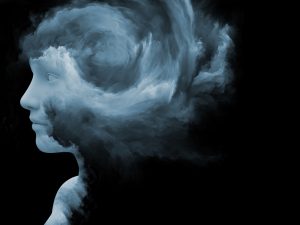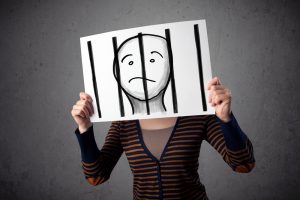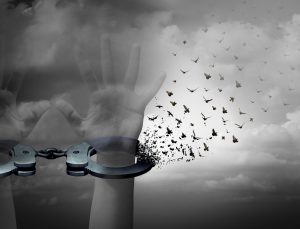Sexuality and intimacy are crucial aspects of human life. It allows two to bond and share the deepest feelings with a wholesome sexual experience. An experience that is pure and filled with love as opposed as corrupt and full of hate. During trauma, individuals can lose intimacy and a healthy understanding of love and sex. This can create obstacles to fully reacclimating into society because one is not able to form a new bond or attachment with another human being. The act of intimacy and the act of sex in themselves can also become triggers and reminders of past abuse and push the person away from these normal and healthy bonds. Please also review AIHCP’s Grief Counseling Program
One who has experienced trauma must eventually face intimacy, trust and friendship and if desired, a more deeper friendship in the contract of a sexual relationship. Unfortunately, trauma makes this difficult and can prevent the person from an important fountain of healing that can bring the person closer to becoming one again. In this article, we will look at a few issues of intimacy and sexuality that someone who has faced trauma will deal with and how that someone can learn to trust and love again. Please also review AIHCP’s Grief Counseling Courses
In intimacy, one opens oneself to another. This can mean many things to a survivor of sexual trauma or betrayal. One feels the loss of a control. In isolation, one feels one has the power to control what occurs and the fear of opening oneself, puts oneself partly at the power of another. It is exactly this power that a trauma survivor fears. In addition, trauma survivors fear abandonment. If one opens up, then one risks the chance of being hurt and betrayed again. Hence many experience abandonment issues. Intimacy also opens up the chance of rejection. Trauma survivors fear the thought of being rejected for who they are and may very well reject someone before they can be rejected.
It is important with intimacy to accept fears. This is the hardest part, but only until one dismisses the fears, can one again learn to have a trusting relationship. The fear may be in the other person, or in one’s own tendencies but one cannot have the healing powers of intimacy without trust and letting fears go. One also needs to reject ideas and notions that can block intimacy with others. Many who have been traumatized universally label everyone. All men/women are bad is a common over generalization. The perpetrator was not good but not all people are bad. This central concept can take time to finally become a reality again. Other false narratives include assuming no one has every experienced what one has experienced, or that one cannot ever burden another with one’s issues. In addition, others feel unloved and if anyone ever knew what occurred, then that person would no longer be lovable. Flaws are seen as more prominent and as a sign of weakness, when in reality everyone has flaws.

Learning how to discuss the past and discuss the future are critical communication skills. Individuals who fear intimacy need to be better able to express to another and share how to handle issues and conflicts. Without releasing the fear, false notions and opening up communication, then a person suffering from trauma will not be able to open again and find the value and healing within a friendship or a deeper relationship.
One of the biggest blocks to a deeper relationship is again seeing sexuality as wholesome and natural. Sex in its very nature promotes union, trust, and love but the trauma has distorted the true value of intimacy and sexuality. Following an assault, sex itself can become a trigger to a PSTD response. A certain touch can remind one of the trauma and turn something of love into something of abuse. The person has a hard time viewing sex as holy and the person as sacred. The rape or assault has stripped sexuality and intimacy of its dignity and the person has difficult times again experiencing these feelings and senses in a positive way.
Sex can also be seen as a way to control others, or it may be a device to fix what went wrong before. Unhealthy expressions and sexual behavior can result in different directions from fear of sex to promiscuity later in life. It is hence important to remove these past negative images. One image that is especially unhealthy is seeing all sexual behavior and correlating it with a sense of disgust. It is important to learn skills to neutralize this feeling of disgust and help re-evaluate these past negative experiences with positive experiences.
In rebuilding oneself for intimacy and sexual relations, the traumatized need to overcome many hurdles of trust and intimacy but certain steps can help to start the healing process. Disgust and association with trauma can be overcame with patience and time and understanding from one’s new partner.
It is hence important to again see certain parts of the body as holy and good. They cannot be seen or associated as evil in themselves. The action must be separated from the part of the body itself. Second, one needs to learn neutralize disgust. Ideas that the body is an object to be used must be dismissed and replaced with ideals that the body is a temple and a gift. This not only deals with the other person, but also how one views oneself. One can further separate the feeling of disgust with sex itself and shame. The shame with trauma needs to be separated from the act itself. By learning to separate negative feelings and events from the body and act itself, one can better open up to others. One can then create a new narrative where the event with a different person is not hateful or abusive but instead filled with love and respect.
Unfortunately, while rebuilding each other, partners should be conscious of others past. Certain boundaries may initially needed and a slow crawl until mutual comfort is met. Flashbacks can occur and it is important to recreate intimacy and the sexual experience together to form new wholesome memories. This requires patience, counseling as well as awareness.
Healthy sexuality is the ultimate key. While intimacy does not necessarily involve sexuality, nor the necessity of entering into a sexual relationship, one must still restore a sense of the sacred to the sexual act. Sex is not about control, secretive, shameful, wrong, abusive, dis-connective, controlling, superficial, or selfish but instead is a spiritual, emotional and physical act that binds. It builds self esteem and gives proper pleasures associated with that. It is celebrated and gives deeper meaning to life. It does not abuse, but promotes a feeling of unity and safety. It honors and loves and builds two instead of breaking down another. Finally, it does not reject, but it also accepts the imperfect and celebrates the two.
For some, sex is more than naturally just beautiful but also sacred from a religious view. Sex in this regard binds two as one before God and calls forward a vocation that goes beyond the symbolic act of sex, but carries itself in all matters of life itself. Spiritually, the destruction of sex to anything less is not of God and is a misuse of this divine gift to not only bring forth new life but also unify two into one.

One can restore intimacy, and if desired, a healthy sexuality after assault, but naturally, the traumatized must learn to reprogram one’s mind to not only not fear but to open up and let go past narratives that prevent the leap of love and faith. The traumatized must also learn differentiate the corruption of the perpetrator from the holiness and goodness of the action itself and how it can be experienced with a good person.
It is a most disgusting sin to harm another through sex because it injures the person not only physically but also emotionally. It affects one’s ability to feel intimacy again and feel trust. It is more than a theft of virginity or physical freedom, but is a theft of self, but fortunately, through healing, counseling and prayer, one can again heal.
Please also review AIHCP’s Crisis Intervention Certification, Stress Management Consulting Program as well as AIHCP’s Grief Counseling Certification Program. The programs are online and independent study and open to qualified professionals seeking a four year certification in these disciplines.








